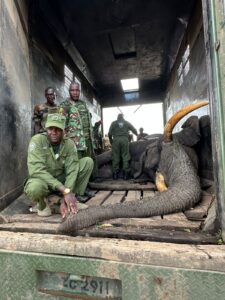 Today, May 25, is known as Africa Day, a celebration of an independent Africa and the forming of the Organization of Africa Unity (OAU). While the OAU is working toward a sustainable path to Africa’s transformation they are highlighting yearly themes for Africa Day and this year’s theme is combatting corruption, which is something Mara ElephantProject, as an African organization, strives toward by working in partnership with both local and national African government organizations to arrest and prosecute ivory dealers, middlemen and poachers.
Today, May 25, is known as Africa Day, a celebration of an independent Africa and the forming of the Organization of Africa Unity (OAU). While the OAU is working toward a sustainable path to Africa’s transformation they are highlighting yearly themes for Africa Day and this year’s theme is combatting corruption, which is something Mara ElephantProject, as an African organization, strives toward by working in partnership with both local and national African government organizations to arrest and prosecute ivory dealers, middlemen and poachers.
MEP was developed to fill a gap in protecting elephants outside of conservancies and protected areas in the Mara ecosystem. Elephants that are “safe” in the Mara have been in the formally protected national reserves. The Government of Kenya through the Narok County Government (NCG) formally protects the animals within the Maasai Mara National Reserve (MMNR); however, bordering three sides of the MMNR is private land, which forms part of the elephants’ natural rangeland. Most of the illegal killing of elephants, and hence the work MEP does, is concentrated in an area of 11,500 km2 outside these areas.
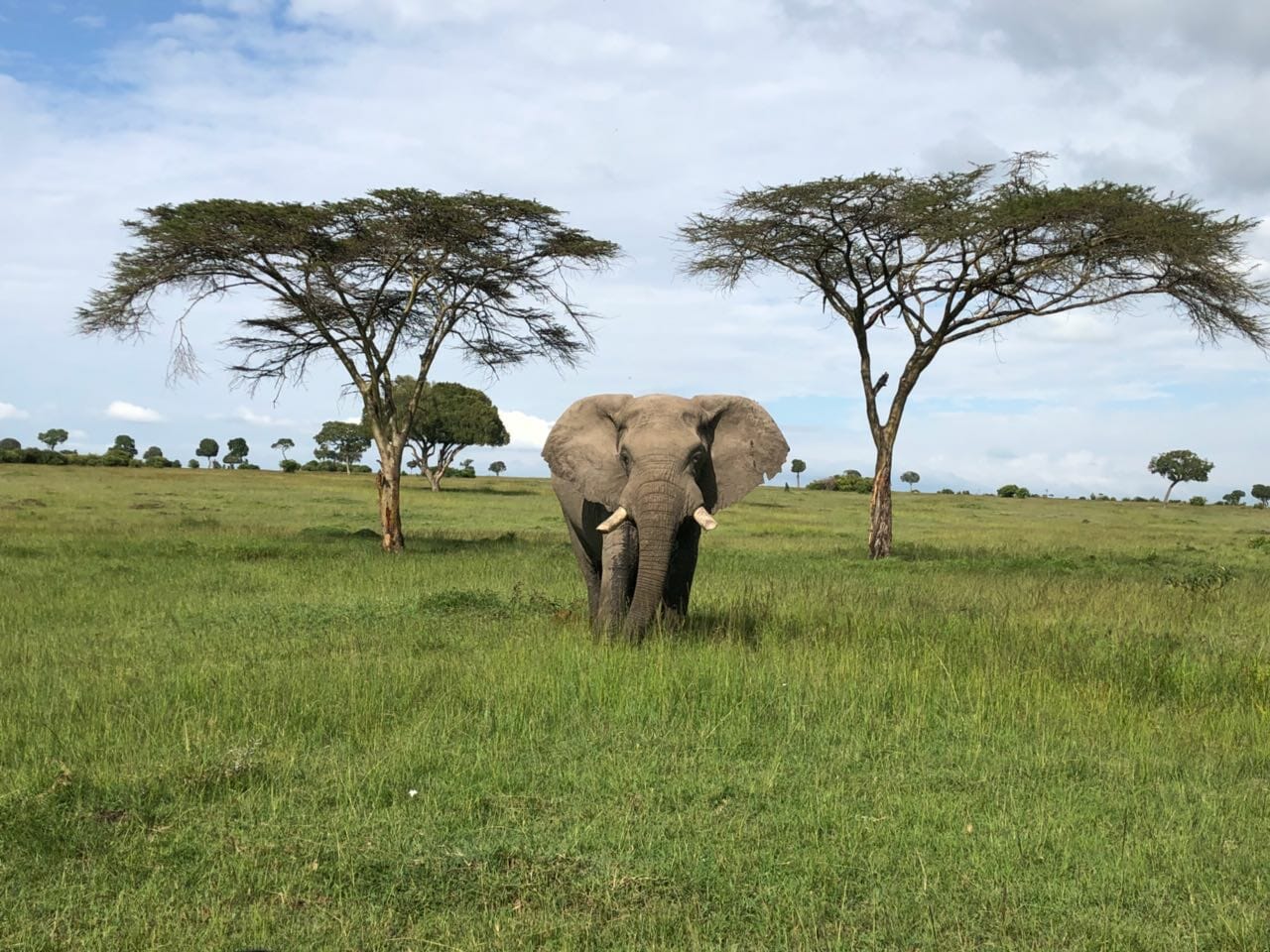
An elephant spotted just this week by MEP rangers on patrol.
One of the key components to keeping elephants safe is our rangers. MEP has developed and successfully manages rapid response anti-poaching units, and six patrol units that patrol hotspots and react to intelligence reports. MEP has also developed a widespread intelligence network to infiltrate poaching gangs. The rapid response units and patrol teams have clearly defined areas of operation, while the intelligence team operates over a larger area. One of the keys to our success is that we work very closely with both local and national government within our ranger units.
MEP has developed a close partnership with the Kenya Wildlife Service (KWS), and NCG by embedding 10 rangers from each organization into MEP teams. These rangers are considered the law enforcement arm of MEP’s operations and along with MEP intelligence ensure that ivory dealers, middlemen and poachers are brought to justice using the criminal justice process properly in Kenya. Since inception, the rapid response units and intelligence teams have been responsible for 316 arrests of ivory dealers, middlemen and poachers. These activities have raised the opportunity cost of poaching in the areas of operation, decreased elephant mortalities, and increased the number of convicted wildlife criminals.
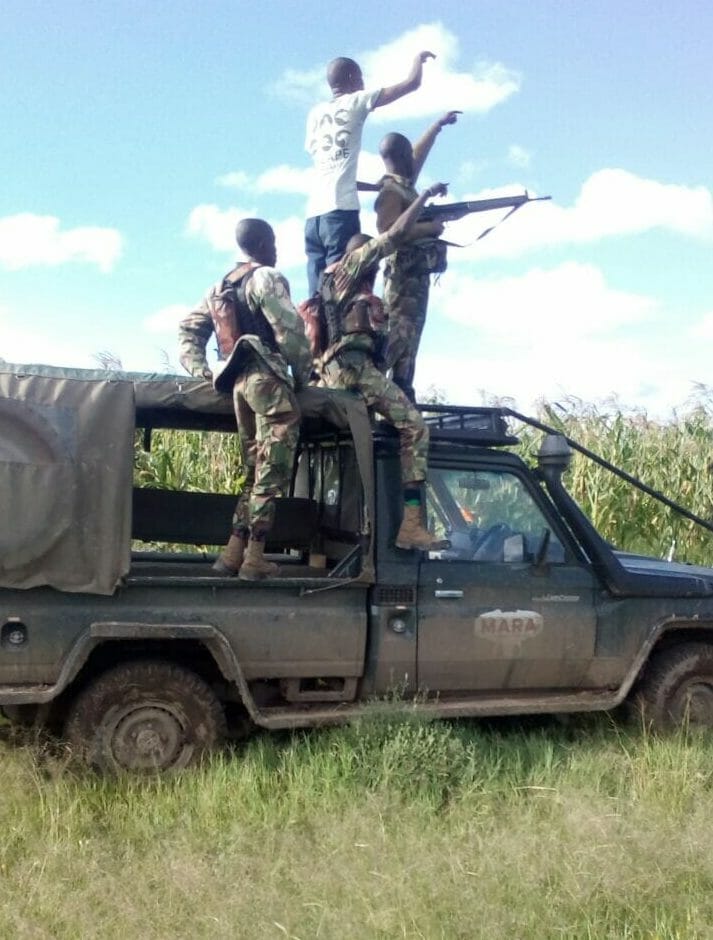
MEP, NCG and KWS rangers in the field mitigating a human-elephant conflict situation.
Using MEP’s baseline arrest data, over 90% of arrests are made by following intelligence data collected by undercover rangers and informants. These rangers and individuals put their lives at risk by infiltrating the poaching networks and gangs.
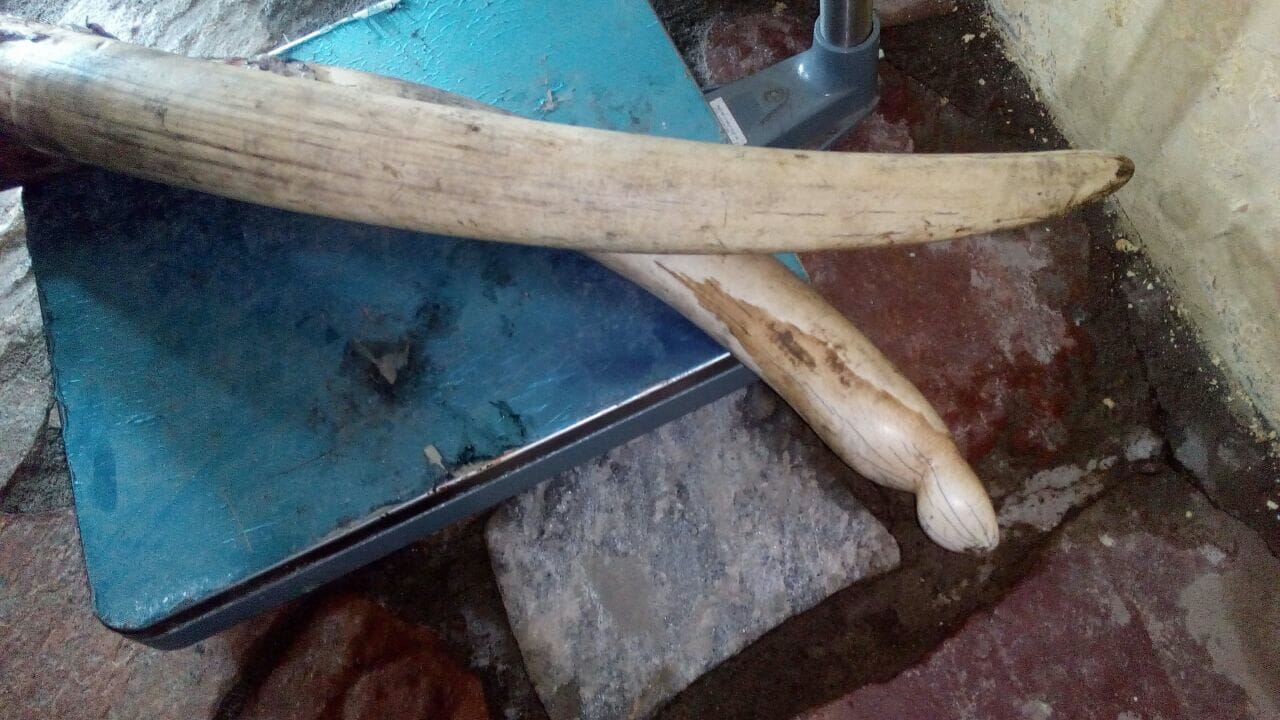
Ivory recovered recently using MEP intelligence.
MEP is using this collaboration technique as we expand our area of operation into the endangered Mau Forest by teaming up with KWS, NCG and the Kenya Forestry Service (KFS) to ensure that there is a government presence within our operations. Through generous funding from our partner, the David Sheldrick Wildlife Trust, MEP’s Mau Forest unit started in January 2018 and along with support from government partners continues to have great success in de-snaring the forest, rooting out poachers and shutting down illegal logging sites.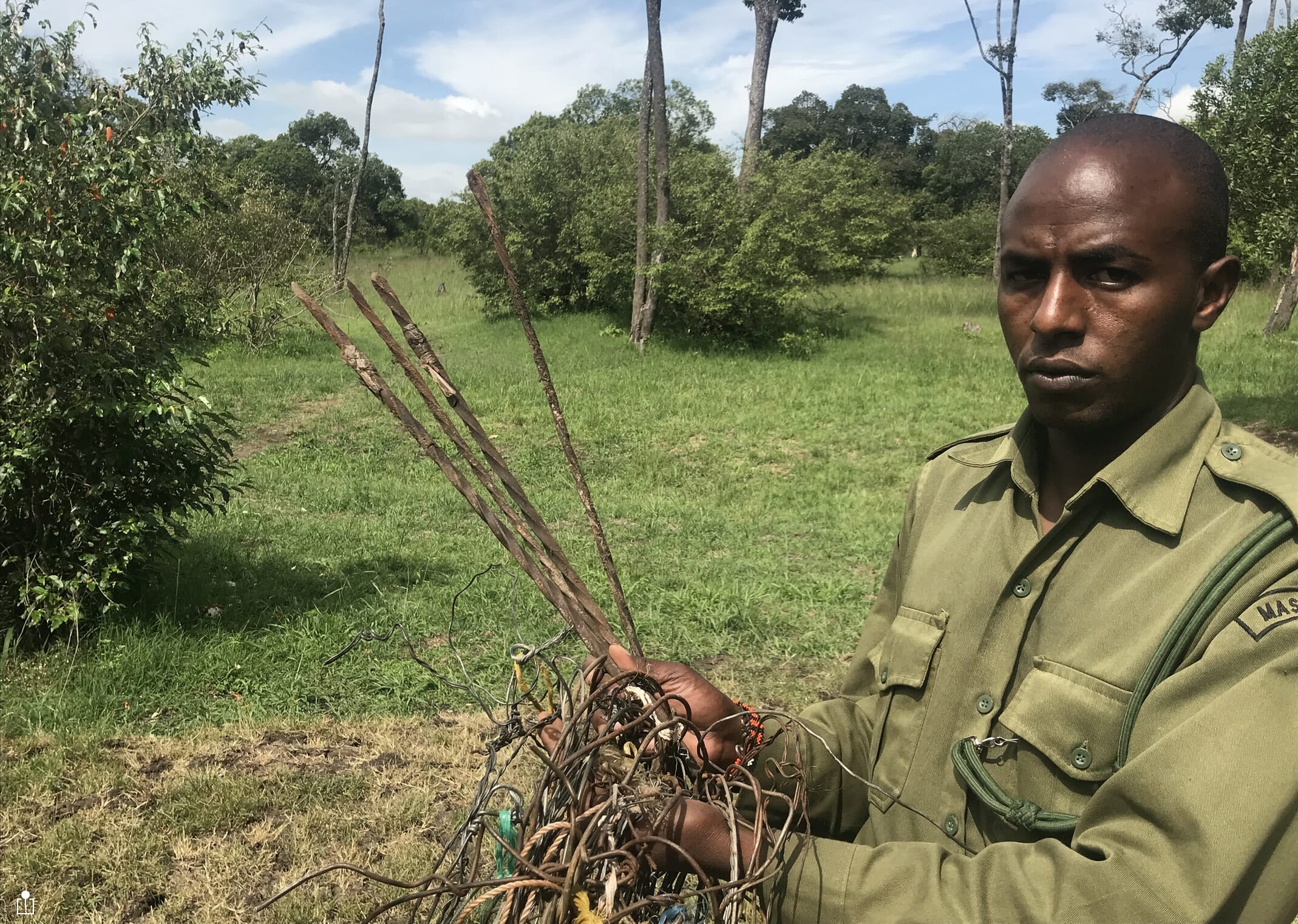
A MEP ranger showing the snares and poison arrows confiscated from the Mau Forest.
MEP’s success is based on the essential partnerships we have with Kenya’s local and national government. It is in this way, with private and government organizations working together on the ground and being transparent that together we are able to address and combat corruption in its various forms.


